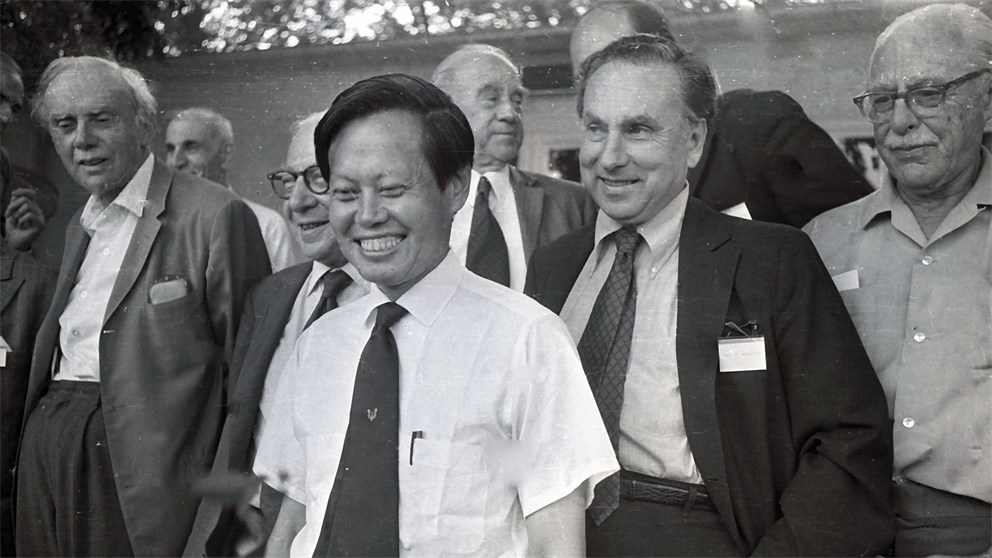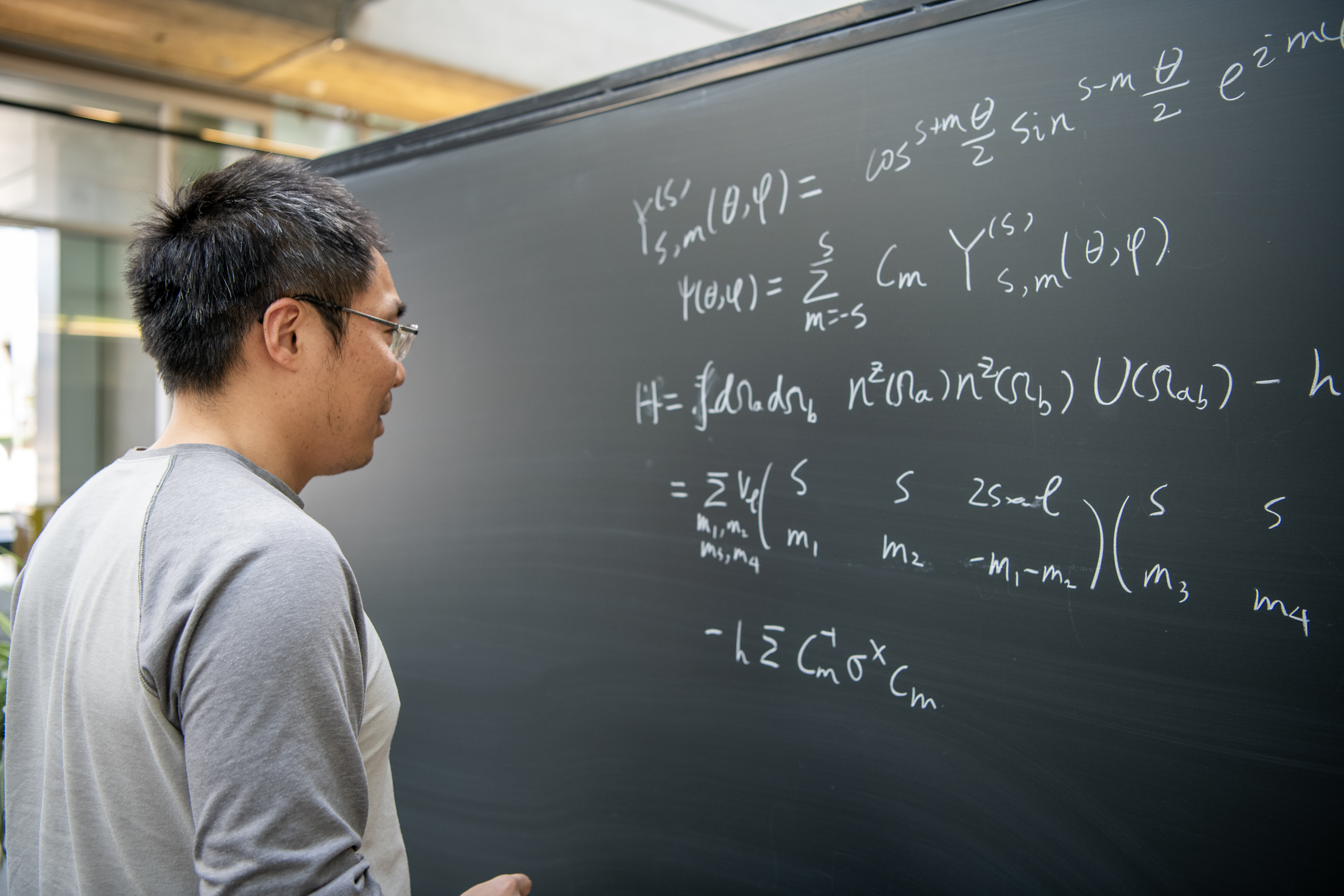Yin-Chen He was a middle-schooler in Yingtan, a small city in China’s Jiangxi province, when he discovered his scientific hero.
In history books He learned of Chen-Ning Yang, a Chinese-American physicist who won the 1957 Nobel Prize for theories that revolutionized particle physics.
“To me, Chen-Ning Yang was a role model,” recalls He.
“Chen-Ning Yang talked about the beauty of nature and physics. At the time, I didn’t fully understand it, but somehow, I felt inspired. It seemed so cool to study physics and understand how the universe operates.”
That inspiration set He on a path that would lead him to Perimeter Institute, where he is now a faculty member in the Quantum Matter group. His work focuses on exploring ‘critical’ phenomena — the universal behaviours that emerge during phase transitions (akin to water freezing into ice or a magnet losing its magnetism).
While these transitions are familiar in everyday life, they also occur in the quantum realm, where they reveal entirely new behaviours.
“Critical phenomena actually happen everywhere,” He explains. “When you boil water, there’s a phase transition. In the universe, there are a lot of critical phenomena. Even in our social life, there’s critical phenomena, like in the stock market. There are even conjectures that our human brain is sitting at a critical point, very similar to the phase transitions I study.”
“My career goal is to exactly solve critical phenomena,” He explains. “These transitions happen everywhere. Understanding them could unlock a lot of mysteries in nature.”
His hometown of Yingtan is a little-known town at the foot of Mount Longhu considered one of the birthplaces of Taoism. Mathematics and physics captivated him early, and he resolved to follow in the footsteps of Chen-Ning Yang as best he could.
After earning his PhD at Fudan University in Shanghai, where his dissertation won an award for excellence, He pursued postdoctoral research at the Max Planck Institute in Dresden and later at Harvard University.
At Harvard, he held the prestigious Betty Moore Fellowship and delved deeper into the mysteries of quantum materials. He also nurtured his passion for soccer – specifically for his favourite team, Real Madrid – and he still devotedly watches the sport today, any time he needs a break from the complexities of quantum science.
He joined Perimeter Institute in 2018, drawn by its reputation as a place where researchers collaborate across disciplines in search of unexpected connections.
“One thing I like about Perimeter is that it’s multidisciplinary,” He says. “There are very healthy and good overlaps between different research fields.”
He is investigating phenomena called quantum spin liquids, a phase of matter where electrons exist in a constantly fluctuating, liquid-like state. He recently collaborated with Perimeter colleagues Chong Wang and Liujun Zou to propose a new class of quantum spin liquids called Stiefel liquids.
“If they can be found in labs, Stiefel liquids would exhibit quantum criticality,” he says. “They could also trigger an expansion of the theoretical toolbox for understanding quantum matter in general.”
He credits Perimeter Institute’s collaborative culture, and the absence of publish-or-perish pressures, as vital to the success of his research.
“At Perimeter, we’re given a lot of freedom about what we do”
This freedom allowed He to pursue an idea that initially seemed like a dead end.
“When I first joined Perimeter, I had an idea, but for three years, there was almost no progress,” he recalls. “I thought this idea wouldn’t work, but I couldn’t let it go. Then, suddenly, it worked much better than I ever expected. That’s thanks to the supportive environment Perimeter provides.”
For He, the allure of physics lies in uncovering the simple rules that govern complex systems. “The universe is very complicated, but in the end, it’s captured by very simple rules, mathematically and physically,” he says.
Now He understands what his scientific hero, Chen-Ning Yang, meant about the beauty of physics.
“That simplicity is beautiful to me.”
À propos de l’IP
L'Institut Périmètre est le plus grand centre de recherche en physique théorique au monde. Fondé en 1999, cet institut indépendant vise à favoriser les percées dans la compréhension fondamentale de notre univers, des plus infimes particules au cosmos tout entier. Les recherches effectuées à l’Institut Périmètre reposent sur l'idée que la science fondamentale fait progresser le savoir humain et catalyse l'innovation, et que la physique théorique d'aujourd'hui est la technologie de demain. Situé dans la région de Waterloo, cet établissement sans but lucratif met de l'avant un partenariat public-privé unique en son genre avec entre autres les gouvernements de l'Ontario et du Canada. Il facilite la recherche de pointe, forme la prochaine génération de pionniers de la science et communique le pouvoir de la physique grâce à des programmes primés d'éducation et de vulgarisation.
Ceci pourrait vous intéresser




